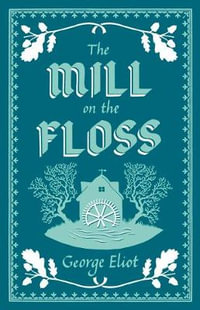‘Plain women he regarded as he did the other severe facts of life, to be faced with philosophy and investigated by science’ Middlemarch
Dorothea is bright, beautiful and rebellious and has married the wrong man. Lydgate is the ambitious new doctor in town and has married the wrong woman. Both of them long to make a positive difference in the world. But their stories do not proceed as expected and both they, and the other inhabitants of Middlemarch, must struggle to reconcile themselves to their fates and find their places in the world.
Middlemarch contains all of life: the rich and the poor, the conventional and the radical, literature and science, politics and romance. Eliot’s novel is a stunningly compelling insight into the human struggle to find contentment.
About the Author
Mary Anne Evans was born near Nuneaton on 22 November 1819. She adopted the pseudonym George Eliot when she began her writing career. In her youth she was heavily influenced by her evangelical teachers but she later broke with orthodox religion. After she moved to Coventry with her father in 1841, she undertook the task of translating D.F. Strauss’s controversial book Life of Jesus Critically Examined (1846) for Charles Bray. After her father’s death she moved to London and helped to edit the radical journal the Westminster Review from 1851 to 1854. In 1851 she also met the journalist George Henry Lewes and, despite Lewes’s marriage, they became partners for the rest of his life. In 1854 Lewes and Eliot openly set up home together, a scandalous arrangement by the social standards of the day. ��In 1857 Eliot published Scenes from Clerical Life in Blackwood’s Magazine and in 1859 her novel Adam Bede was published to great acclaim and established her as a bestselling author. Her most famous novel, Middlemarch, was published serially in 1871. Lewes died in 1878 and, in 1880, Eliot married John Walter Cross, an American who was twenty years her junior. George Eliot died on 22 December 1880 and is buried in Highgate Cemetery next to Lewes.
Industry Reviews
Perhaps the greatest novel of them all... An enormous canvas and a vast and poignant range of character...a marvellous portrait of nineteenth-century provincial life
In Middlemarch George Eliot's serious intelligence produced a novel that no one else could have been capable of - a picture of society as an organic, living, breathing synthesis - order and disorder, hope and hopelessness, pride and humility, charity and greed.

























